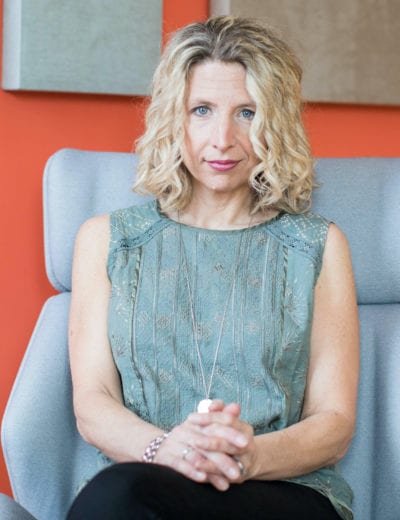
These projects were made possible from Cure Alzheimer's Fund support.
| Project Description | Researchers | Funding |
|---|---|---|
| Neuroimmune Consortium: Effects of Peripheral Inflammation on Myeloid Cell Function in Alzheimer’s Disease |
2023 $344,085 |
|
| Revealing New Genes and Pathways at the Intersection of Lipotoxic and Genetic Risk for Alzheimer’s Disease |
2021, 2022, 2023 $516,257 |
|
| Neuroimmune Consortium: Understanding the Consequences of Noncoding Alzheimer’s Disease Risk Alleles on Microglia Function |
2020, 2022 $600,000 |
|
| Microglial Heterogeneity and Transcriptional State Changes in Alzheimer’s Disease |
2018-2019 $598,039 |
|
| Early Role of Microglia in Synapse Loss in Alzheimer’s Disease |
2016, 2017 $300,000 |
These published papers resulted from Cure Alzheimer’s Fund support.
Dolan, M. J., Therrien, M., Jereb, S., Kamath, T., Gazestani, V., Atkeson, T., Marsh, S. E., Goeva, A., Lojek, N. M., Murphy, S., White, C. M., Joung, J., Liu, B., Limone, F., Eggan, K., Hacohen, N., Bernstein, B. E., Glass, C. K., Leinonen, V., Blurton-Jones, M., … Stevens, B. Exposure of iPSC-derived human microglia to brain substrates enables the generation and manipulation of diverse transcriptional states in vitro, Nature Immunology, July 27, 2023, Read More
Hammond, T. R., Marsh, S. E., & Stevens, B. Immune Signaling in Neurodegeneration, Immunity, April 16, 2019, Read More
Tenner, A. J., Stevens, B., & Woodruff, T. M. New tricks for an ancient system: physiological and pathological roles of complement in the CNS, Molecular Immunology, October 1, 2018, Read More
Marsh, S. E., Walker, A. J., Kamath, T., Dissing-Olesen, L., Hammond, T. R., de Soysa, T. Y., Young, A. M. H., Murphy, S., Abdulraouf, A., Nadaf, N., Dufort, C., Walker, A. C., Lucca, L. E., Kozareva, V., Vanderburg, C., Hong, S., Bulstrode, H., Hutchinson, P. J., Gaffney, D. J., Hafler, D. A., Franklin, R. J. M., Macosko, E. Z., & Stevens, B. Dissection of artifactual and confounding glial signatures by single-cell sequencing of mouse and human brain, Nature Neuroscience, March 8, 2022, Read More
Yvanka de Soysa, T., Therrien, M., Walker, A. C., & Stevens, B. Redefining microglia states: Lessons and limits of human and mouse models to study microglia states in neurodegenerative diseases, Seminars in Immunology, September 22, 2022, Read More
Scott-Hewitt, N., Perrucci, F., Morini, R., Erreni, M., Mahoney, M., Witkowska, A., Carey, A., Faggiani, E., Schuetz, L. T., Mason, S., Tamborini, M., Bizzotto, M., Passoni, L., Filipello, F., Jahn, R., Stevens, B., & Matteoli, M. Local externalization of phosphatidylserine mediates developmental synaptic pruning by microglia, The EMBO Journal, July 13, 2020, Read More
Wieder, N., Fried, J. C., Kim, C., Sidhom, E. H., Brown, M. R., Marshall, J. L., Arevalo, C., Dvela-Levitt, M., Kost-Alimova, M., Sieber, J., Gabriel, K. R., Pacheco, J., Clish, C., Abbasi, H. S., Singh, S., Rutter, J. C., Therrien, M., Yoon, H., Lai, Z. W., Baublis, A., Subramanian, R., Devkota, R., Small, J., Sreehanth, V., Han, My., Lim. D., Carprenter, A. E., Flannick, J., Finucane, H., Haigis, M.C., Claussnitzer, M., Sheu, E., Stevens, B., Wagner, B. K., Choudhary, A., Shaw, J. L., Pablo, J. L., & Greka, A. FALCON systematically interrogates free fatty acid biology and identifies a novel mediator of lipotoxicity, Cell Metabolism, May 2, 2023, Read More
Paolicelli, R. C., Sierra, A., Stevens, B., et al. Microglia states and nomenclature: A field at its crossroads, Neuron, November 2, 2022, Read More
Whitson, H. E., Colton, C., El Khoury, J., Gate, D., Goate, A., Heneka, M. T., Kaddurah-Daouk, R., Klein, R. S., Shinohara, M. L., Sisodia, S., Spudich, S. S., Stevens, B., Tanzi, R., Ting, J. P., Garden, G., & Symposium Planning Committee members Infection and inflammation: New perspectives on Alzheimer’s disease, Brain, Behavior, & Immunity - Health, April 22, 2022, Read More
Liddelow, S. A., Marsh, S. E., & Stevens, B. Microglia and Astrocytes in Disease: Dynamic Duo or Partners in Crime?, Trends in Immunology, August 17, 2020, Read More
Liddelow, S. A., Guttenplan, K. A., Clarke, L. E., Bennett, F. C., Bohlen, C. J., Schirmer, L., Bennett, M. L., Münch, A. E., Chung, W. S., Peterson, T. C., Wilton, D. K., Frouin, A., Napier, B. A., Panicker, N., Kumar, M., Buckwalter, M. S., Rowitch, D. H., Dawson, V. L., Dawson, T. M., Stevens, B., Barres, B. A. Neurotoxic reactive astrocytes are induced by activated microglia, Nature, January 18, 2017, Read More